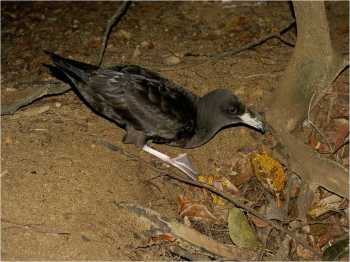Peter Puskic (Institute for Marine and Antarctic Studies, University of Tasmania, Newnham, Tasmania, Australia) and colleagues have published in the journal Conservation Physiology finding that fatty-acid levels in two shearwater species were not related to the amount of plastic items ingested.
The paper’s abstract follows:
“Marine plastic pollution is increasing exponentially, impacting an expanding number of taxa each year across all trophic levels. Of all bird groups, seabirds display the highest plastic ingestion rates and are regarded as sentinels of pollution within their foraging regions. The consumption of plastic contributes to sub-lethal impacts (i.e. morbidity, starvation) in a handful of species. Additional data on these sub-lethal effects are needed urgently to better understand the scope and severity of the plastics issue. Here we explore the application of fatty acid (FA) analysis as a novel tool to investigate sub-lethal impacts of plastic ingestion on seabird body condition and health. Using gas chromatography-mass spectrometry, we identified 37 individual FAs within the adipose, breast muscle and liver of flesh-footed (Ardenna carneipes) and short-tailed (Ardenna tenuirostris) shearwaters. We found high amounts of FA 16:0, 18:0, 20:5n3 (eicosapentaenoic acid), 22:6n3 (docosahexaenoic acid) and 18:1n9 in both species; however, the overall FA composition of the two species differed significantly. In flesh-footed shearwaters, high amounts of saturated and mono-unsaturated FAs (needed for fast and slow release energy, respectively) in the adipose and muscle tissues were related to greater bird body mass. While total FAs were not related to the amount of plastic ingested in either species, these data are a valuable contribution to the limited literature on FAs in seabirds. We encourage studies to explore other analytical tools to detect these sub-lethal impacts of plastic.”

Flesh-footed Shearwater, photograph by Barry Baker
Reference:
Puskic, P.S., Lavers, J.L., Adams, L.R., Grünenwald, M., Hutton, I. & Bond, A.L. 2019. Uncovering the sub-lethal impacts of plastic ingestion by shearwaters using fatty acid analysis. Conservation Physiology 7(1). doi:10.1093/conphys/coz017.
John Cooper, ACAP Information Officer, 08 July 2019

 English
English  Français
Français  Español
Español